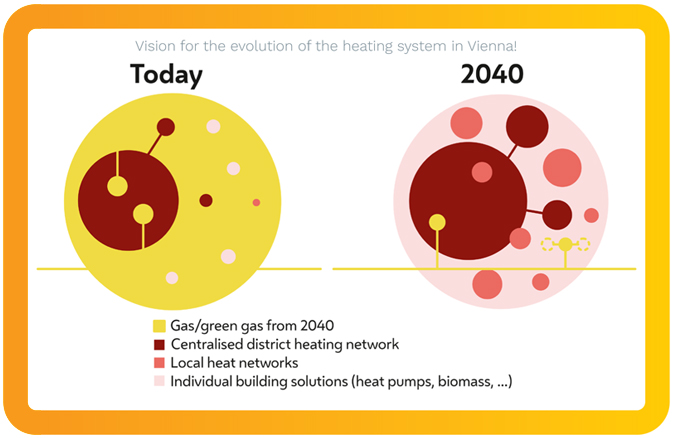Prioritising upgrades for buildings will accelerate the rollout of green technologies, while improving the lives of people living in energy poverty and reducing energy consumption, writes EPBD lead negotiator Greens/EFA MEP Ciarán Cuffe.
Vienna, the fifth largest city in the European Union, is working to be climate-neutral from 2040 onwards, despite a growing population. In December 2022, the city published its “Phasing Out Gas – Heating and Cooling Vienna 2040” strategy. This sets the course for the energy transition for space heating, and for the progressive phase-out of 600,000 gas-fired units (approximately 474,000 gas-fired boilers and 260,000 gas stoves). This will not only reduce greenhouse gas emissions but ensure security of supply.
The political will to find socially equitable solution
The buildings sector accounts for nearly a third of Vienna's GHG emissions, 90% of which stem from the use of gas for heating. As stated by Jürgen Czernohorszky, Executive City Councillor for Climate, Environment, Democracy and Personnel of Vienna, phasing-out natural gas is a complex challenge: "Both at the federal and the provincial levels, clearcut legal provisions must be formulated, and durably earmarked subsidy schemes must be created. The switch to renewable energy sources can only come about as a socially equitable process – the people of Vienna must know precisely what to expect.". The "Heating and Cooling Vienna 2040" strategy provides this vision, as well as the technical requirements and the next actions to implement it.
"Green" gases are not the way for buildings' decarbonisation.
The city does not consider "green" gases such as green hydrogen, biogas and synthetic gas as alternatives to natural gas for heating houses. Two main reasons underpin this decision: a limited amount of green gases is expected to be available in the future, and these high-value energy carriers and sources are preferable for sectors in which no alternatives exist (grid flexibility, for industries requiring high temperatures or in some areas of public transport).
Replacement of individual gas boilers by a central heating system in multi-apartment buildings is both necessary and possible.
In addition to insulation for buildings, Vienna’s strategy relies on the expansion, densification and decarbonisation of district heating as well as the deployment of individual heat pumps. District heating will be the preferred option in densely built areas of the city – especially in the inner city – preferably with a connection rate close to 100%. Individual heat pumps, especially geothermal-grounded heat pumps, are the most cost-effective solution in less populated areas. The "Heating and Cooling Vienna 2040" strategy explores ways to replace individual gas boilers in multi-apartment buildings by a central heating system, which is the cost-effective decarbonisation option at the energy-system level and a must to connect these buildings to district heating.

Learn more about energy planning in European cities on the Decarb City Pipes 2050 website.
Exchanges with the cities of Bilbao, Dublin, Munich, Rotterdam, and Winterthur have been a great help for Vienna to design its strategy within the framework of the EUfunded project Decarb City Pipes 2050. Since 2020, each of these cities have developed heat strategies including heating and cooling outlooks, spatiallydisaggregated heating and cooling plans at district level and implementation roadmaps. Lessons learnt are gathered into a comprehensive set of resources for cities looking to strengthen their energy planning, such as this guide on heating and cooling mapping.